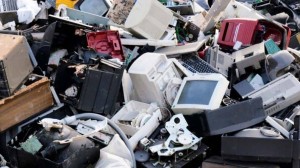According to iNEMI, the International Electronics Manufacturing Initiative, societal transformation from a linear economy – based on the traditional take-make-waste model – to a circular economy, sees more and more manufacturing companies take steps towards positive development cycles.

The DEC BLOG think-tank drilled down further at Productronica 2019 on how electronics manufacturing companies can accelerate their transition towards a sustainable system through raw materials efficiency, systems transformation, waste reduction, product remanufacturing and growth through sustainable value exchange. Some statistics supporting the need to embrace this change show out of 45+ million tons of electronics disposed of globally, only 20% of this waste was recycled in some way, while 80% went to landfill. In addition, global electronic waste is set to reach 50 million tons per annum with 80% of it being shipped to and dumped in emerging countries. Consequently, DEC BLOG 1 calls for a halt in this by identifying and promoting best practices to reduce the impact of waste levels – striving for an eco-friendly and sustainable future for the digital economy.
Discussion surrounded ways EMS companies can accelerate the transition of manufacturing towards a sustainable system. These included resource efficiency, manufacturing systems transformation and sustainable value exchange. Opinions states the biggest resource productivity gains can be made by being efficient with raw materials, minimising waste and looking at ways to capture value from waste. This means moving from a linear electronics manufacturing model to a cyclical, or ‘circular’ model.
However, sustainable business models require a huge amount of imagination and skill. For example, it is easier to buy a wind turbine to supply your factory than make energy efficiency cuts, however the biggest profit win will come from increasing efficiency. Building incentive into a system is how companies might change their business models in the years to come. Imagine if a car company retained ownership of the cars they sold, leasing the car out with fuel included in the monthly charge? Suddenly, there is an incentive for the car manufacturer to build a more fuel-efficient car, so the question asked is can business models be changed?
The Institute for Manufacturing (IfM) reports SME UK manufacturers who tried to move towards applying only half of the energy efficiency moves of the most efficient companies, would benefit by £10bn per annum in additional profit. Moving halfway towards sustainable management practices should be realistically achievable for most EMS firms. With energy, waste and water reduction targets and a 12% reduction in Greenhouse Gas Emissions for 2020 in the pipeline, these companies are a good example of how to establish a responsible legacy for future generations.
